Posts Tagged ‘Armed Conflict’ (233 found)
ရွမ္းတိုင္းရင္းသားမ်ား ဒီမိုကေရစီအဖြဲ႔ခ်ဳပ္၏ ပါတီတည္ေထာင္ျခင္း (၂၆)ႏွစ္ျပည့္ ထုတ္ျပန္ေၾကညာခ်က္
• • •Statement by Political and Community Based Organizations in Kayah State Condemning the Planned Trespassing Charges Against 190 Villagers of Hso Lyah Ku Village in Pruso Township of Kayah State
a) The lands around Hso Lyah Ku village, which have been farmed for generations by the villagers, have been forcibly confiscated by Light Infantry Battalion 531 due to the failure of previous governments to issue title deeds to land owners, and also due to the failure to proceed with registration of the land according to the 2012 Land Law […]
• • •Myanmar: Comprehensive Solutions Needed for Recent and Long-term IDPs Alike
IDMC estimates that there are up to 642,600 internally displaced people (IDPs) in Myanmar, forced to flee their homes by armed conflict and inter-communal violence. The figure includes up to 400,000 people living in protracted displacement as a result of conflict in the south-east of the country – in southern Shan, Kayah, Kayin and Mon states and Bago and Tanintharyi regions – and 98,000 displaced by conflict in Kachin and northern Shan states since 2011. It also includes around 140,000 people displaced by inter-communal violence in Rakhine state since 2012, and more than 5,000 who fled their homes in Mandalay region in 2013. Disasters brought on by natural hazards and forced evictions linked to land grabs and the exploitation of natural resources have caused further displacement, including in areas where people have already fled conflict and violence.
Landmines and unexploded ordnance constitute a significant obstacle to IDPs’ return in Kachin, northern Shan and the south-east. Internally displaced women and girls in Kachin and northern Shan face the threat of sexual violence. Muslim IDPs in Rakhine are confined to camps, where they have little or no access to health care, education or livelihoods, and shelters are in need of maintenance in Rakhine, Kachin and northern Shan […]
• • •More Transparency Required Regarding Burma Army’s Operations
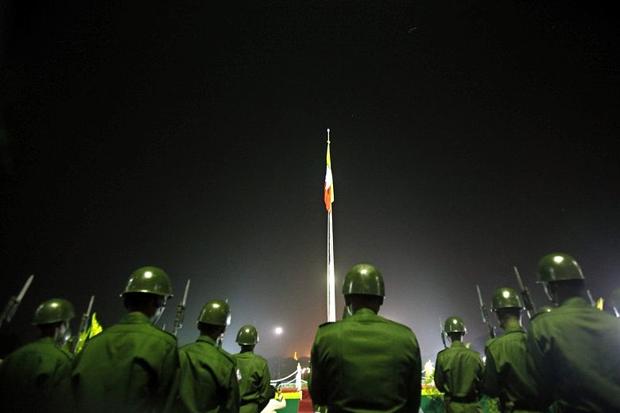 As documented on countless occasions by many local and international groups, the Burma Army has long been committing serious human rights abuses in ethnic areas of Burma, especially recently in Kachin State. Such abuses include waging war against civilians, summary executions, torture and mutilations, rape and other sexual violence against women, men and children, arbitrary detention, destruction of homes and property, and the blocking of humanitarian access. Such abuses terrorise local populations, undermine trust and confidence in the current peace process, and are illegal under international law. Furthermore, many of these human rights abuses could also be classified as war crimes or crimes against humanity […]
As documented on countless occasions by many local and international groups, the Burma Army has long been committing serious human rights abuses in ethnic areas of Burma, especially recently in Kachin State. Such abuses include waging war against civilians, summary executions, torture and mutilations, rape and other sexual violence against women, men and children, arbitrary detention, destruction of homes and property, and the blocking of humanitarian access. Such abuses terrorise local populations, undermine trust and confidence in the current peace process, and are illegal under international law. Furthermore, many of these human rights abuses could also be classified as war crimes or crimes against humanity […]
Burma Army Makes a Mockery of the Census and its Backers
———— We would like to dedicate our Weekly Highlights today to U Win Tin, Co-founder and patron of the National League for Democracy, for always standing up for the oppressed and voiceless. We are deeply saddened Ba Ba passed away this morning. Although he is no longer physically with us, his unwavering righteous mind and courage will continue to be the guiding light and the inspiration for us and for all who continue in their fight for genuine democracy and freedom of speech in Burma.
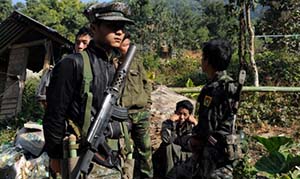 Just 48 hours after peace talks in Rangoon concluded on 8 April between the government and ethnic non-state armed groups, including the Kachin Independence Organization (KIO), the Burma Army launched another round of offensives in southern Kachin State against the Kachin Independence Army (KIA). Fighting has been on-going since, forcing thousands of Kachin, Shan, and Palaung villagers to flee, many of whom had already been displaced in this conflict.
Just 48 hours after peace talks in Rangoon concluded on 8 April between the government and ethnic non-state armed groups, including the Kachin Independence Organization (KIO), the Burma Army launched another round of offensives in southern Kachin State against the Kachin Independence Army (KIA). Fighting has been on-going since, forcing thousands of Kachin, Shan, and Palaung villagers to flee, many of whom had already been displaced in this conflict.
Burma Army soldiers originally used the nationwide census as a pretext to accompany enumerators into KIA territory and launch attacks on various KIA outposts. State media has reported 22 dead due to the resulting clashes but the true figure is probably much higher. Meanwhile, according to a statement released by a coalition of humanitarian groups working in the conflict-affected areas, over three thousand villagers have been forced to flee, many of whom had to leave an internally displaced people (IDP) camp, from which they had settled after previous attacks. Several local news sources have stated the figure of those displaced maybe as high as ten thousand people […]
• • •Same Impunity, Same Pattern: Sexual Abuses by the Burma Army Will Not Stop Until There is a Genuine Civilian Government
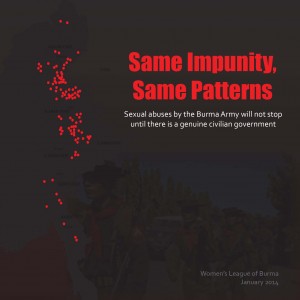 Almost a decade ago, the Women’s League of Burma (WLB) denounced systematic patterns of sexual crimes committed by the Burma Army against ethnic women and demanded an end to the prevailing system of impunity. Today WLB is renewing these calls. Three years after a nominally civilian government came to power; state-sponsored sexual violence continues to threaten the lives of women in Burma.
Almost a decade ago, the Women’s League of Burma (WLB) denounced systematic patterns of sexual crimes committed by the Burma Army against ethnic women and demanded an end to the prevailing system of impunity. Today WLB is renewing these calls. Three years after a nominally civilian government came to power; state-sponsored sexual violence continues to threaten the lives of women in Burma.
Women of Burma endure a broad range of violations; this report focuses on sexual violence, as the most gendered crime. WLB and its member organizations have gathered documentation showing that over 100 women have been raped by the Burma Army since the elections of 2010. Due to restrictions on human rights documentation, WLB believes these are only a fraction of the actual abuses taking place […]
51st Anniversary of Ta’ang National Resistance Day Statement
The 51 anniversary commemorating the armed struggle of all Ta’ang nationals to get free from Myanmar’s dictatorial governments’ oppression falls on 12 January, 2014.
On this remarkable resistance day, we, the PSLF/TNLA Central Committee, send our deepest respect and take great pride in our heroic nationals who gave their lives and lost possessions during the 51 years of the revolutionary road towards the creation of a Ta’ang Nation […]
• • •Ethnic Conflict in Burma/Myanmar: From Aspirations to Solutions
In November, TNI/BCN hosted a two-day seminar, involving ethnic groups from different regions of Burma, on the theme of “Ethnic Conflict in Burma/Myanmar: From Aspirations to Solutions”. Those participating included 20 representatives from Burmese civil society, political and armed opposition groups.
The seminar focused on four main areas: political reform; moving from ceasefires to political dialogue; land rights and natural resource extraction; and ethnic identity and citizenship […]
• • •
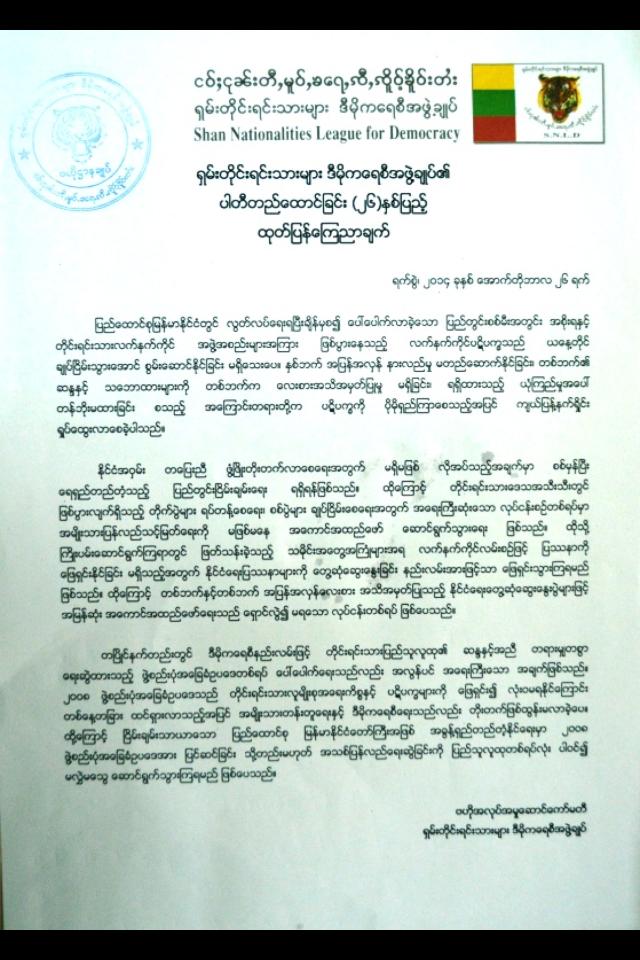
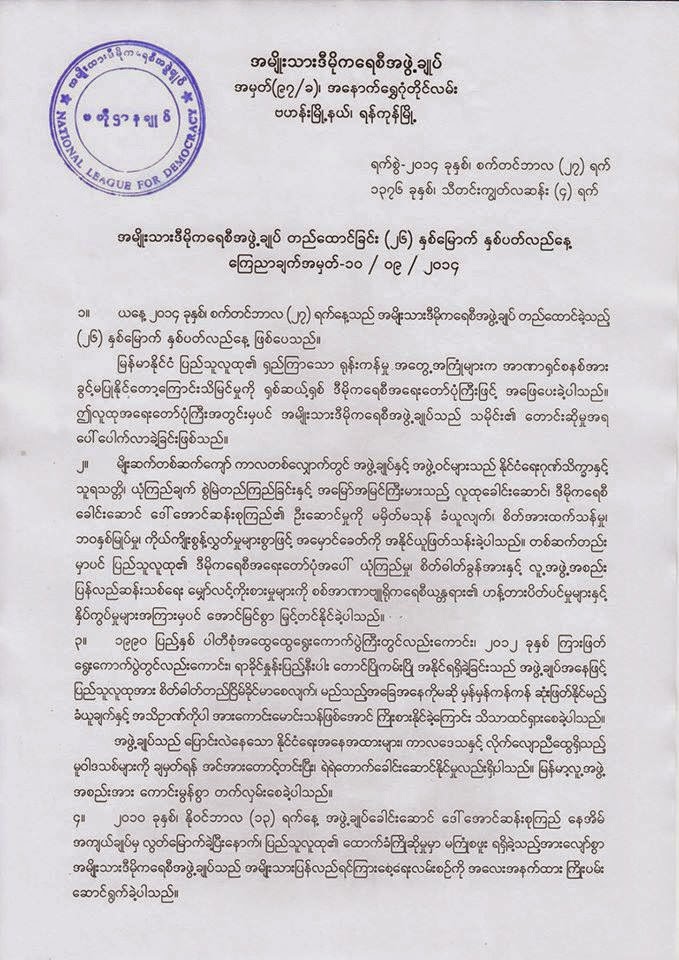
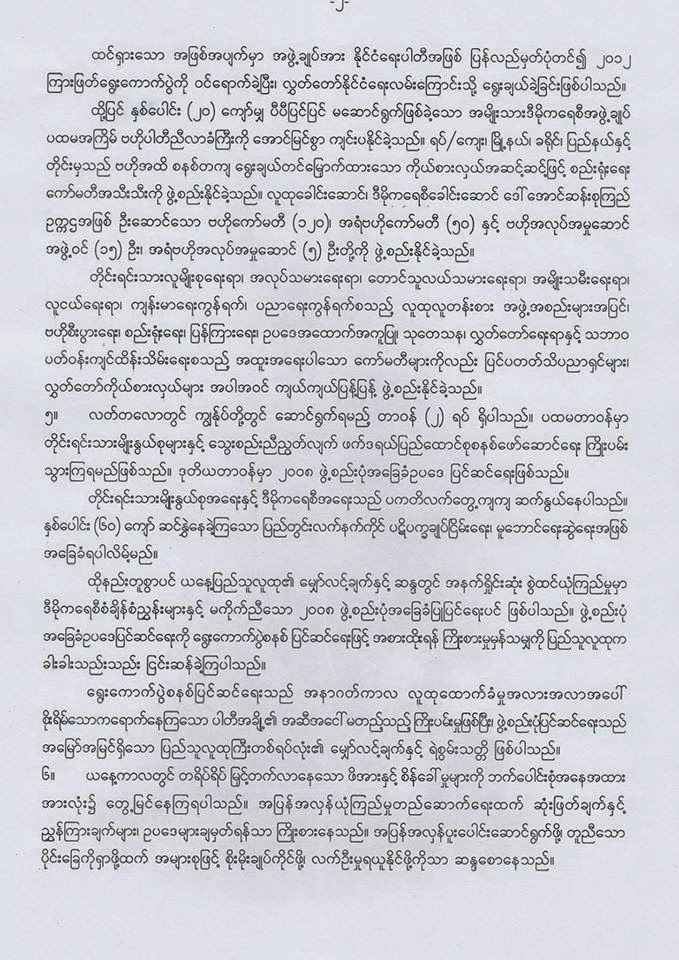
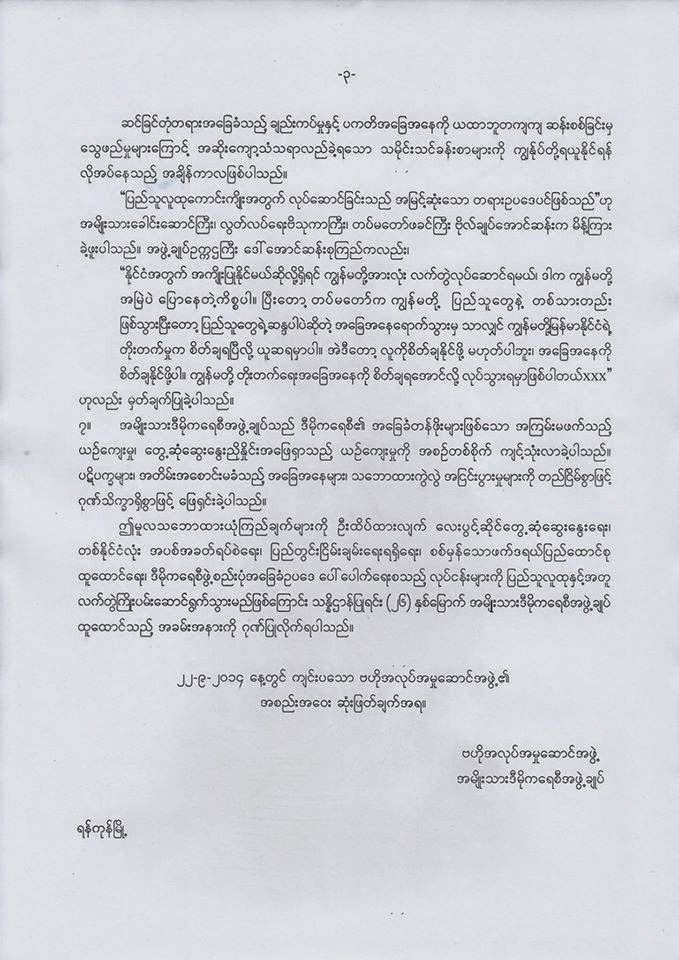
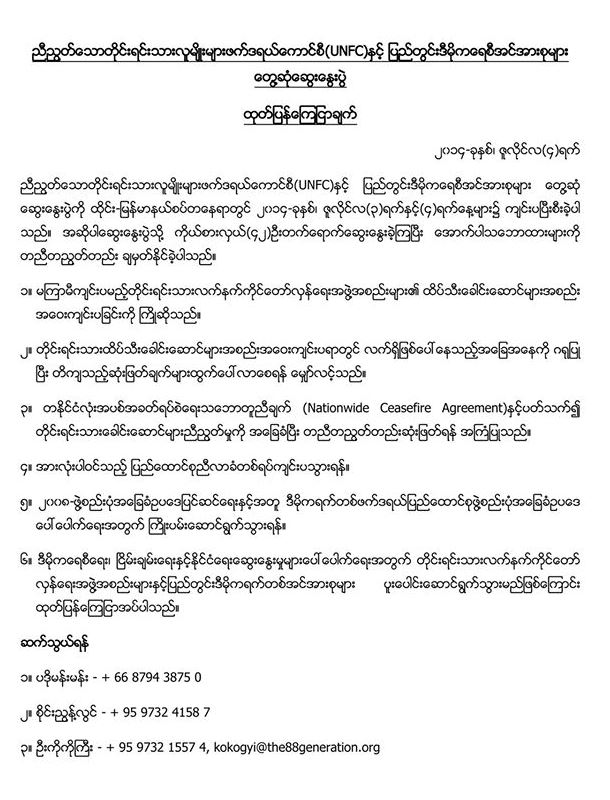
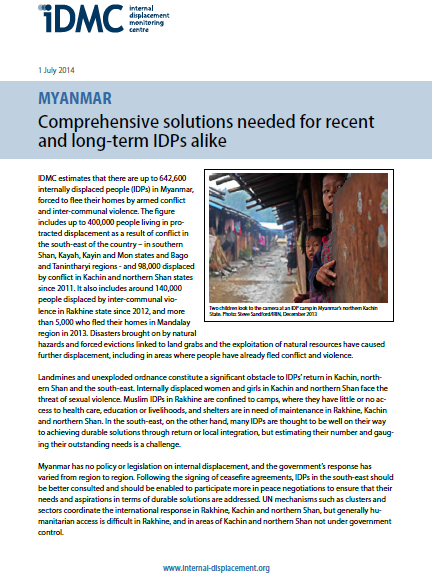








 All posts
All posts